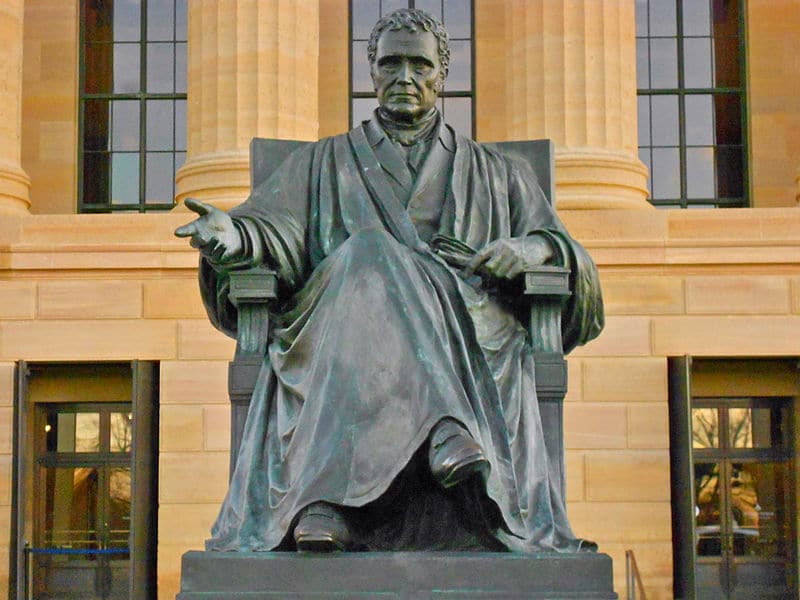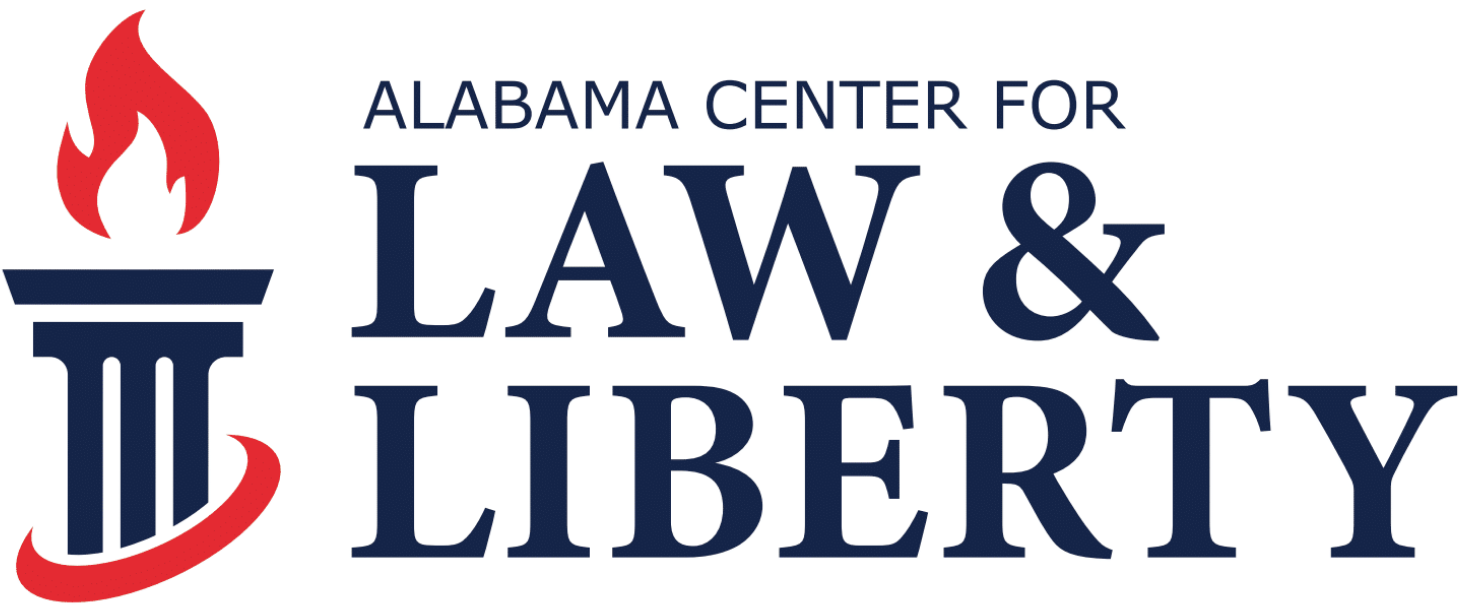Ortiz-Diaz
v.
United States
ACLL Role: Amicus
Case Start Date: May 22, 2019
Deciding Court: U.S. Supreme Court
Original Court: U.S. District Court for the District of Puerto Rico
Practice Area(s): Limited Government, Free Markets
ACLL Role:
Case Start Date:
Deciding Court:
Original Court:
Practice Area(s):
Amicus
May 22, 2019
U.S. Supreme Court
U.S. District Court for the District of Puerto Rico
Limited Government, Free Markets
CASE SNAPSHOT
In 2019, several Puerto-Ricans sued the United States for outlawing cockfighting in Puerto Rico. The United States defended its law by arguing that the Constitution’s Commerce Clause gave it authority to legislate in this area, and the lower courts agreed. The petitioners asked the United States Supreme Court to take the case, arguing that this fell outside the scope of the Commerce Clause. ACLL filed an amicus curiae brief on behalf of Jeffrey C. Tuomala, Professor of Constitutional Law at the Liberty University School of Law. This brief explained how the Court has lost track of the Commerce Clause’s meaning and has twisted it to justify a runaway federal government that has greatly overstepped its bounds. Since we now have the most conservative Supreme Court in nearly a century, we urged the Court to return to the original meaning of the Commerce Clause, which would reign in much of the federal government’s usurpation of states’ rights.
STATUS
ACLL filed a friend-of-the-court brief at the Supreme Court on July 8, 2021.
FOR THE MEDIA

CASE SUMMARY
Background
This case arose out of a federal law that outlaws cockfighting in Puerto Rico. The United States won Puerto Rico from Spain in 1898 in the Spanish-American War. While Congress does have authority to regulate U.S. Territories under Article IV, § 3, of the Constitution, the Supreme Court has held that Congress relinquished much of this control when it ratified the Puerto-Rican Constitution in the mid-twentieth century. Consequently, Puerto Rico now enjoys sovereignty over its local affairs in the same way that each state in the country does.
According to the petitioners, cockfighting is to Puerto Rico what horseracing is to Kentucky and what rodeos are to Texas. In 2018, however, Congress banned cockfighting in Puerto Rico. Regardless of whether cockfighting should be legal or not, the bigger question is by what authority Congress could do this after relinquishing control of Puerto Rico’s local affairs. The federal government’s answer is the one constitutional provision that it has used to justify most of its intrusions into state and local affairs for nearly a century: the Commerce Clause.
Unpersuaded, several Puerto Ricans sued the United States, arguing that the Commerce Clause does not give the federal government this authority. The trial court ruled in favor of the United States, and the U.S. Court of Appeals for the First Circuit affirmed on appeal.
The petitioners then asked the U.S. Supreme Court to take the case. Representing Jeffrey C. Tuomala, Professor of Constitutional Law at the Liberty University School of Law, ACLL filed an amicus brief urging the Court to take the opportunity to reexamine is Commerce Clause decisions and return the federal government to the limited role our Constitution gives it.
The Original Meaning of the Commerce Clause
As James Madison noted in Federalist 42, one of the biggest problems with the Articles of Confederation was trade wars among the states. Because the national government lacked the power to regulate interstate commerce, the states would often tax goods that came from other states, driving up the prices of interstate goods while keeping the prices of their own goods low. Consequently, it was hard to create a free national economy where each part of the country could benefit from the goods that the other parts had to offer.
Therefore, when the Constitution replaced the Articles of Confederation in 1787, it gave Congress the power to “regulate Commerce … among the several States ….” Art. I, § 8, cl. 3. Early Supreme Court cases wrestled with the scope of this power and the role of the States. Chief Justice John Marshall believed that there were two components to interpreting the Commerce Clause: its subject (interstate commerce), and its object, or purpose (which was to ensure free trade). Thus, according to Chief Justice Marshall, the federal government alone had the power to regulate interstate commerce, but it could only do so for ensuring free trade and promoting harmonious relations among the states. In subsequent cases, Marshall explained that the states could do things that incidentally burdened interstate commerce (like building a dam on a waterway to prevent flooding, even though doing so might impair the ability of ships to use that waterway between states) for the purpose of exercising the state’s police powers (i.e. protecting the public health, safety, welfare, and morals).
Thus, Chief Justice Marshall separated federal commerce powers from state police powers, recognizing Congress’s role of regulating interstate commerce but only for the purpose of ensuring free trade, while allowing the States to take care of their own people without infringing on their rights. This view of the Commerce Clause gave the Federal Constitution the interpretation its framers intended without allowing the federal government to get away with whatever it wanted.
The Road to Federal Tyranny
The Supreme Court took its first step towards unraveling Chief Justice Marshall’s framework in 1851 in Cooley v. Board of Wardens. In this case, the Supreme Court held that the states and the federal government had concurrent power to regulate interstate commerce. At first glance this did not appear to increase federal power. However, like a game of Jenga, once the Court took out an important piece of the structure, it was only a matter of time before the rest fell.
The second step towards unravelling the Marshall framework came in 1903 in Champion v. Ames (also known as The Lottery Case). Here, the Court held that Congress could regulate interstate commerce for the purpose of exercising police powers—which traditionally had been reserved to the states. Because of this decision, Congress could do whatever it thought was in America’s best interests as long as it somehow related to interstate commerce. That was a huge expansion of federal power.
Finally, in 1942, the Marshall framework was effectively obliterated. In Wickard v. Filburn, the Supreme Court held that Congress’s commerce power gave it the ability to prevent farmers from growing wheat on their own land for their own consumption. Despite the fact that this is a completely intrastate matter, the Court reasoned that Congress could regulate intrastate commercial activities like this if in the aggregate those activities would substantially impact interstate commerce. In plain English, this means that if farmers everywhere are allowed to grow food on their own land for their own consumption, then that will necessarily affect the price of food on the national market, and therefore Congress has the right to tell them they can’t do that.
This radical departure from the Commerce Clause’s original meaning has justified nearly every federal intrusion into state affairs ever since the New Deal Era, from gun laws to healthcare laws and everything in between.
The Court did try to place one limitation on this expansive new power. In 1995, the Court held in United States v. Lopez that Wickard’s rule was limited to economic activities. While this helped slow the federal government down, it fell far short of restoring the Commerce Clause to its original meaning.
The Solution
As the Scripture says in another context, “Stand ye in the ways, and see, and ask for the old paths, where is the good way, and walk therein.” Jeremiah 6:16. Restoring the Commerce Clause to its original meaning does not require us to create a new path, but merely to return to the old one Chief Justice Marshall used. Marshall’s framework gave Congress the power it needed to accomplish the framers’ intent without abrogating the rights of the states and the people. Thus, if we return to Chief Justice Marshall’s framework, then it would push the federal government out of most of the areas in which it has usurped states’ rights. Consequently, Professor Tuomala and ACLL have asked the Court to return to “the old paths.”
Importance to Limited Government and Free Markets
Ever since the New Deal Era, the federal government has relied on the Supreme Court’s erroneous interpretation of the Commerce Clause to justify its overreach into areas that the Tenth Amendment reserves to the States and the People. Restoring the original understanding of the Commerce Clause would push the federal government back into its constitutionally limited role, where it has the power to regulate interstate commerce for the purpose of protecting a free and open market.
Alabama Center for Law & Liberty 2213 Morris Ave, Floor 1 Birmingham, AL 35203 256-530-0519
The Alabama Center for Law and Liberty is Christian non-profit law firm.
©Alabama Center for Law & Liberty. All rights reserved.
